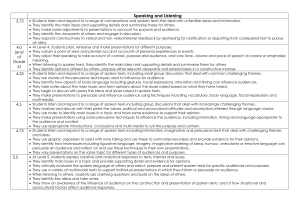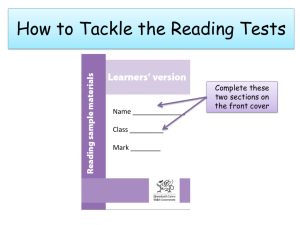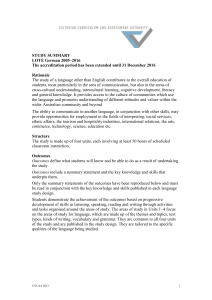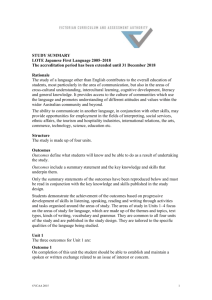Writing
advertisement
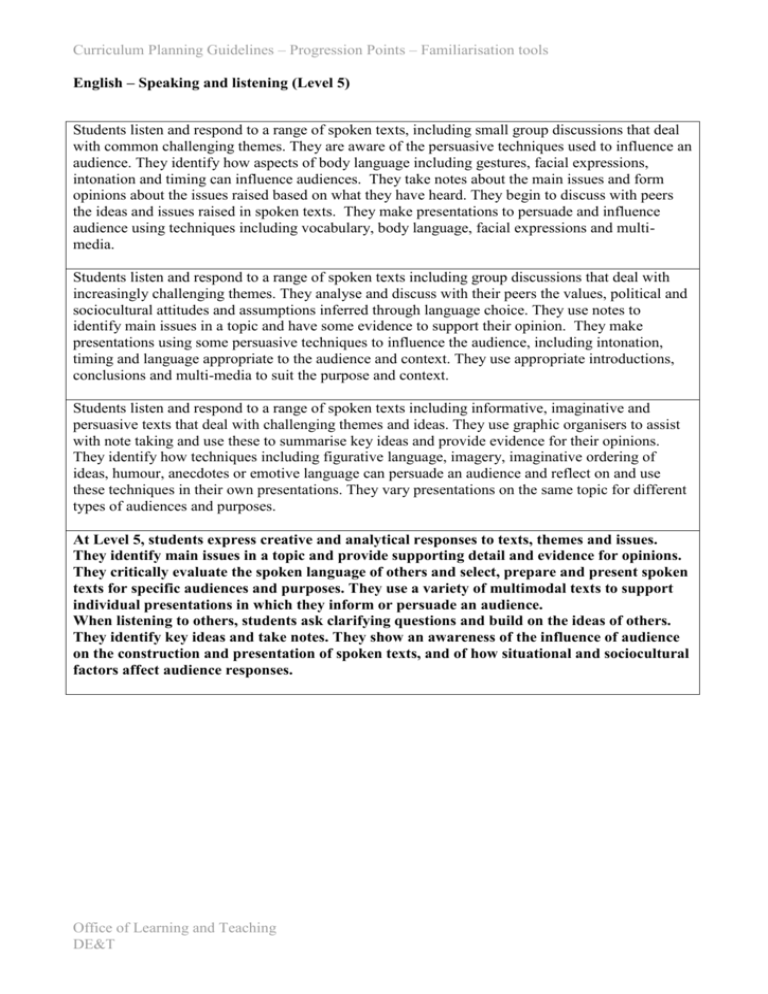
Curriculum Planning Guidelines – Progression Points – Familiarisation tools English – Speaking and listening (Level 5) Students listen and respond to a range of spoken texts, including small group discussions that deal with common challenging themes. They are aware of the persuasive techniques used to influence an audience. They identify how aspects of body language including gestures, facial expressions, intonation and timing can influence audiences. They take notes about the main issues and form opinions about the issues raised based on what they have heard. They begin to discuss with peers the ideas and issues raised in spoken texts. They make presentations to persuade and influence audience using techniques including vocabulary, body language, facial expressions and multimedia. Students listen and respond to a range of spoken texts including group discussions that deal with increasingly challenging themes. They analyse and discuss with their peers the values, political and sociocultural attitudes and assumptions inferred through language choice. They use notes to identify main issues in a topic and have some evidence to support their opinion. They make presentations using some persuasive techniques to influence the audience, including intonation, timing and language appropriate to the audience and context. They use appropriate introductions, conclusions and multi-media to suit the purpose and context. Students listen and respond to a range of spoken texts including informative, imaginative and persuasive texts that deal with challenging themes and ideas. They use graphic organisers to assist with note taking and use these to summarise key ideas and provide evidence for their opinions. They identify how techniques including figurative language, imagery, imaginative ordering of ideas, humour, anecdotes or emotive language can persuade an audience and reflect on and use these techniques in their own presentations. They vary presentations on the same topic for different types of audiences and purposes. At Level 5, students express creative and analytical responses to texts, themes and issues. They identify main issues in a topic and provide supporting detail and evidence for opinions. They critically evaluate the spoken language of others and select, prepare and present spoken texts for specific audiences and purposes. They use a variety of multimodal texts to support individual presentations in which they inform or persuade an audience. When listening to others, students ask clarifying questions and build on the ideas of others. They identify key ideas and take notes. They show an awareness of the influence of audience on the construction and presentation of spoken texts, and of how situational and sociocultural factors affect audience responses. Office of Learning and Teaching DE&T


